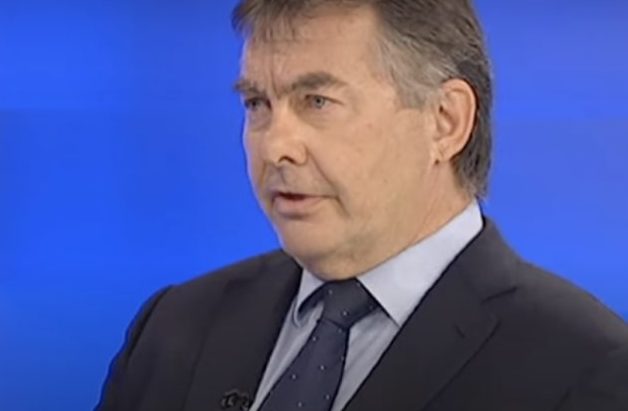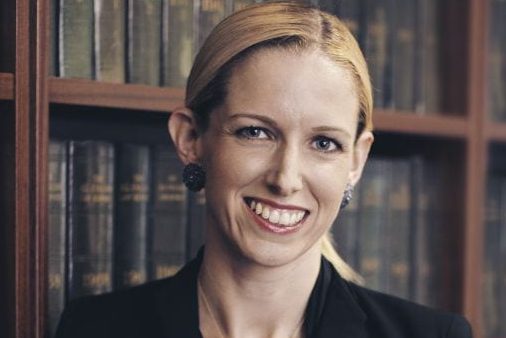
Beyond the daily news coverage, “CityNews” legal commentator and former barrister HUGH SELBY will be commentating on the Sofronoff Inquiry’s public hearings, focusing upon the advocacy and witness performances.
The Sofronoff Inquiry was established by the ACT government in December to examine how police, prosecutors and a victim support service handled allegations made by Brittany Higgins against her former colleague Bruce Lehrmann.

THE ACT Director of Public Prosecutions, Shane Drumgold, SC, was the first witness called to the Board of Inquiry.
Mr Drumgold chose to wear quiet colours, a choice that matched the careful content and tone of his answers.
Surprisingly, given the “attacking” nature of much of the morning’s questions, he was not first questioned by his own advocate.
Why surprising? That he would be open to criticism has been obvious for months. Therefore, his advocate might have wanted to deflect, rebut or reduce some of that criticism by giving the DPP the chance to make concessions such as “in hindsight it would have been better if I had done this rather than that”.
This is called “confess and avoid” and is a technique well known to prosecutors who must often anticipate the defence cross-examination. Had that happened today the DPP would have fared rather better.
As it was, there was nothing shared with the livestream audience as to the agenda of topics that Erin Longbottom, counsel assisting (CA), was going to follow. Perhaps this had been shared with the DPP. If so, it wasn’t obvious.
Lacking any “road map” the audience first heard about a prosecutor’s role as “Minister of Justice”, the need for objectivity by any prosecutor, and the maintenance of trust between the community and a prosecutor’s office. With all these propositions the DPP agreed. He asserted that he had never lost his objectivity in the prosecution of Mr Lehrmann.
Some 29 documents were then put into evidence (these will be available on the inquiry website); however, some form of record prepared by a person who may be a later witness as to communications between them and the DPP in 2022, was not included. Moreover, this record was not disclosed to the DPP before he was confronted with it in the witness box. More about that later.
In passing we learned that the DPP had concerns as to whether police were properly interpreting a statute provision as to when they should or should not charge a person. Given the DPP’s complaints about alleged police conduct, we can expect to hear more about this issue, not only from him but other witnesses.
CA then moved to what was to be the “all morning” topic: communications about what media celebrity Lisa Wilkinson might, could, could not do if she was awarded a Logie for her reporting of the Higgins’ account of what had happened to Ms Higgins.
The DPP gave sound answers to questions about applications to delay a trial because of media reporting that could prejudice independent thought by a juror (called a stay application). That is, the answers were persuasive until the commissioner intervened and deftly pulled apart the strands of some of the answers, exposing flaws in the reasoning.

As the questioning continued the CA would refer to an event or some communication and give it a date. The DPP wouldn’t know the date. That’s not surprising. He is the busy head of a busy organisation. What was surprising is that the DPP did not have in front of him a complete timeline to which he could refer. It’s surprising because timelines are a fundamental of good advocacy and good evidence.
The focus for the rest of the morning was the interchanges between the DPP and Ms Wilkinson/her lawyers. These interchanges included an audio-visual meeting, phone calls/messages, emails and a letter from her lawyer to the DPP.
The audio-visual meeting included a lawyer for Ms Wilkinson. This meeting was a proofing meeting. These are commonplace in preparing any witness for trial. The trial process is explained. The witness statement is reviewed. If there are any changes to that statement those changes must then be disclosed by the prosecutor to the defence.
This proofing meeting also included some discussion about Ms Wilkinson’s possible Logie Award and a speech she might make if she was successful. Some notes were made by an attending junior DPP officer. These were circulated and some additions were then made to reflect what the DPP had to say at that meeting about giving such a speech.
There was nothing especially noteworthy about the DPP remarks, the more so as an earlier court application to prevent publication of some other material had failed.
The CA suddenly accused the DPP of lying
Given what written material had been shown on the hearing screen it was somewhat surprising to have the CA suddenly accuse the DPP of lying in his written statement prepared for the inquiry.
The surprise had these aspects: first, that there was insufficient basis to assert a wilful lie by the DPP; second, the use of such a rookie tool of cross-examination (does the questioner expect the witness to break down and exclaim: ‘Yes, yes, I lied, I lied’); and, third, Ms Wilkinson had her own lawyer present at the audio-visual meeting from whom, presumably, she got timely and accurate legal advice about the consequences of making a speech.
The commissioner then intervened with a line of incremental questions that had the DPP concede that he’d made an error in his written statement characterisation of an internal office note as “contemporaneous”. (The note had both a contemporaneous account and then an added bit that was still sufficiently close in time to the meeting to be a useful record.)
CA questioned the DPP at some length about exchanges between him and Ms Wilkinson’s lawyer in October 2022.
CA’s questions were based upon some documents that had not been disclosed to the DPP or his lawyers.
His advocate, Mark Tedeschi KC, objected but was overruled. Still, it was easy to fathom why the objection was made. The use of the document when the DPP target was being taken unaware smacked of unnecessary surprise.
What was lost, in the interests of understanding the what, the how and the why, in giving a copy of that document to Mr Drumgold and his team in advance? Was this unnecessary hurt?
Rather more telling in terms of understanding the DPP personality and criticising his approach to his job was his repeated failure to answer correspondence (summarised as two phone calls, two emails and a letter). He had no good answer to CA’s question: “Do you think it was professional not to respond to correspondence from a solicitor?”
Tedeschi asked what contact he could have with his client
The afternoon session began with an exchange between the commissioner and Mr Tedeschi, which is useful for all other witnesses and their lawyers. Mr Tedeschi asked for clarification as to what contact he could have with his client, the DPP, while the DPP was being questioned by the CA.
Earlier in this commentary I mentioned “confess and avoid” and the utility of having a witness first questioned by their advocate. The commissioner explained the differences between this investigative hearing and the usual course of a civil or criminal trial in which a witness is first examined in chief by their advocate, then cross-examined by the opponent’s advocate, and then re-examined by their advocate.
The CA’s questions and approach do not equate to either chief or cross as traditionally understood. There was an amalgam.
However, the commissioner made it clear that during the CA questioning a witness could not talk to their lawyer about their evidence during any breaks. This is a rule that in trials applies during cross, but not during chief.
An important concession was that the advocate for a witness will be given time to confer with that witness after the CA’s questioning ends and before the advocate’s questioning begins.
The afternoon focus was about aspects of disclosure of documents by police to the defence. Much disclosure is routine, non-contentious; however, there can be sound reasons not to disclose a particular document. The focus narrowed to advice given by the DPP to the AFP about the disclosure or non-disclosure of certain documents.
As happened during the morning the DPP gave answers to the CA that were rational and in which he clearly believed. Unlike the morning session, when he was often leaning on an elbow, he opened up and used effective hand gestures.
But that was until, after being shown some emails, he was ruthlessly pinned to the wall by a series of short questions from the commissioner. The conclusion was that the DPP had offered his opinion about the non-disclosure of some documents without checking that there was a sound factual foundation for that opinion.
This first day of hearing has:
- Clarified aspects of how witnesses will be managed as they give evidence;
- Shown that both the DPP and the inquiry staff have done a lot of work in preparation for the public hearings;
- Suggested shortcomings in some DPP communications and his approach to communicating with the profession; and,
- Demonstrated that a true aim in the hands of a consummate advocate will strike home and cause serious injury. Just how serious will become clearer in the next couple of days.
Author’s notes on his inquiry commentary
A well-run public inquiry is like an iceberg: what you see at the public hearing is just the tip of a much larger “work in progress”.
For some months the inquiry staff have been interviewing people and collecting records. All that information is then available to the inquiry advocates (counsel assisting), ammunition to fire or soothing lotion to apply when asking a witness questions.
Woe betide the witness who, waiting for the questions, sees only the counsel assisting. This is not a one-on-one contest: counsel assisting is just the public face of concerted team work.
In recent public inquiries into, for example, the suicide of our Defence Forces’ veterans, or victims of institutionally based sexual predators, the “soothing” element has been a focus with those witnesses who were victims or victim’s relatives.
But among those witnesses who might have strayed and who might be publicly exposed, “hope” springs eternal until it’s too late even to save some dignity. Even when they know what is in the advocate’s gun they hope for a misfire. One must first deceive oneself before deceiving others.
For any witness there is the added problem that the commissioner can ask as many questions as they like. This does not happen in court proceedings where the judge is seen but little heard.
At any moment the commissioner may intervene in the to and fro between witness and advocate. Here one can see how the public interest is served by appointing as commissioner someone who was a skilled advocate earlier in their career.
My bad dream, even in retirement, is being a witness at a public inquiry who is being led gently or pushed ruthlessly by counsel assisting, and then suddenly being engaged by a commissioner who knows how to cross-examine.
Cross-examination is an art, reflecting at least two of the following: innate temperament, experience, and good mentoring. Above all else it is manipulative. It suggests the inevitable conclusion to the listener without stating it. The listener takes themself to the finish line. As a witness, to fight on two fronts against well provisioned, skilled opponents is a nightmare.
All that being noted we must keep in mind that the commissioner opened the public hearings with this significant comment: Nobody should be harmed unnecessarily.
–HUGH SELBY
Who can be trusted?
In a world of spin and confusion, there’s never been a more important time to support independent journalism in Canberra.
If you trust our work online and want to enforce the power of independent voices, I invite you to make a small contribution.
Every dollar of support is invested back into our journalism to help keep citynews.com.au strong and free.
Thank you,
Ian Meikle, editor





Leave a Reply